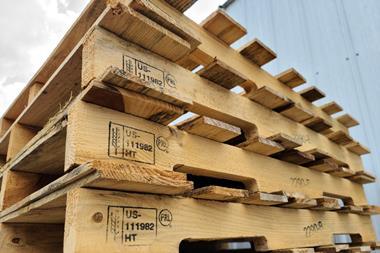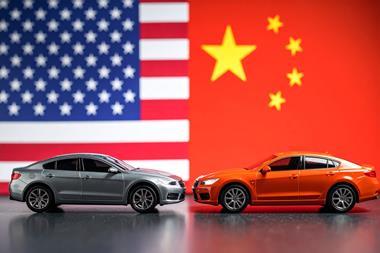There is evidence of (un)healthy growth in the global trade of counterfeit parts and vehicles, which not only carries risks to the safety of the end-user, but also to the brand reputations of carmakers. Some important discoveries of such parts have been found during customs crackdowns at major logistics centres.
 A large share of those fake parts are reported to be from China. Trafficking of counterfeit vehicle parts is also obviously a significant economic problem for the motor vehicle parts supplier industry. Frost and Sullivan has estimated that the global loss to motor vehicle suppliers because of counterfeiting could be as high as $45 billion in 2011.
A large share of those fake parts are reported to be from China. Trafficking of counterfeit vehicle parts is also obviously a significant economic problem for the motor vehicle parts supplier industry. Frost and Sullivan has estimated that the global loss to motor vehicle suppliers because of counterfeiting could be as high as $45 billion in 2011.
A recent seizure of aftermarket parts in Dubai by the Commercial Compliance and Consumer Protection (CCCP) division of the Dubai government’s Department of Economic Development contained more than 64,000 fake automotive parts worth $817,000, largely made up of duplicates of major Japanese brands. The majority of parts seized included nearly 30,000 air and oil filters as well as fan belts, brake systems and valves; they were subsequently destroyed.
Dubai is one of the world’s fastest-growing logistics hubs and it was the largest seizure the CCCP has made, following an investigation of consumer complaints and random inspections. More than 13m containers of products come into Dubai every year.
According to the Middle East business resource AME Info, commercial fraud costs the United Arab Emirates (UA E) around $136m a year, with the greater part of that figure attributed to counterfeit automotive parts, as well as electrical appliances, cosmetics and tobacco.
It is not just the Middle East that is having a problem with fake automotive products. In Europe, 73% of fake goods came from China in 2011, according to a report on EU customs enforcement. In the report the European Commission recorded that fraudulent vehicles, parts and accessories worth a retail value of €27m ($35m) were seized. Around 68% were from China (including Hong Kong) and nearly 25% from the UAE.
The EC is currently debating a proposal for a new regulation on customs enforcement of intellectual property rights, designed in part to address the increasing importance of such rights for the EU economy and what it called “practical problems in the implementation of the present regulation”.
“The aim is to strengthen customs’ ability to combat illegal trade as customs plays a crucial role in stopping counterfeit products from entering the EU,” said a spokesperson for the EC’s Taxation, Customs, Anti-fraud and Audit department.
US retail loss
The problem is also significant in the US automotive sector. According to the Automotive Aftermarket Suppliers Association (AASA), the US industry loses around $3 billion annually as a result of service parts counterfeiters. The AASA estimates the global industry loss to be around $12 billion.
In 2011, the Intellectual Property Rights team at the US Customs and Border Protection agency (CBP) seized counterfeit parts worth a retail value of around $1.2m in the automotive and aerospace commodity category. Brake systems, windshields and airbags were prominent, said the agency.
The majority of counterfeit goods stopped by the CBP are shipped by ocean and air, though truck and rail shipments do occur. The problem is being exacerbated by online retail.
Bill Long, president and CO O of the AASA, said that athough online sales of counterfeit car parts are not the primary means of such parts entering the marketplace, AASA members and other manufacturers are seeing an increase in counterfeit parts in the global online environment and are thus becoming more proactive in monitoring internet retail activity more tightly.
“Intellectual property rights violations cost the US motor vehicle parts industry billions of dollars each year,” said Long. “The supplier member companies of the AASA must protect their trademarks and other intellectual property in an increasingly globalised economy. Counterfeiters find ample opportunity to illegally profit from the investments and innovation of aftermarket parts manufacturers.”


































